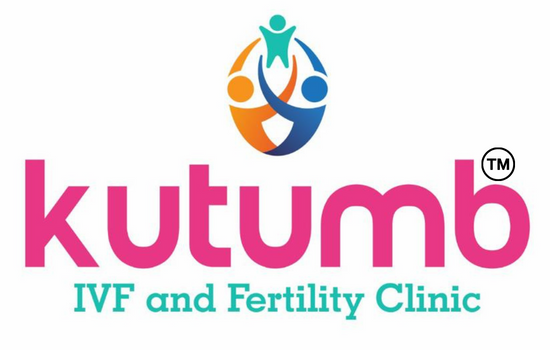Embarking on the journey of In Vitro Fertilization (IVF) can be a rollercoaster of emotions for couples. The hope, anticipation, and sometimes the disappointments can create a unique set of challenges. It’s crucial to acknowledge the emotional toll that the IVF journey can take and actively seek ways to manage stress. In this blog post, we will explore effective strategies for couples navigating the complexities of IVF.

Understanding the IVF journey and its impact on couples
In Vitro Fertilization involves a series of medical procedures with the ultimate goal of helping couples conceive. While the medical aspects are meticulously planned, the emotional impact on couples is often underestimated. The journey can be physically and emotionally draining, leading to heightened stress levels.
Emotional Rollercoaster:
Couples may experience a range of emotions, from excitement and hope during each cycle to disappointment and frustration if the results are not as expected. Understanding that these emotions are a natural part of the process can help couples cope better.
Impact on Relationships:
The IVF journey can strain even the strongest relationships. The pressure, uncertainty, and sometimes the financial burden can lead to tension between partners. Open communication is vital during this time, fostering empathy and mutual support.
Dealing with Uncertainty:
One of the most challenging aspects of IVF is the uncertainty surrounding its success. Couples may face the emotional challenge of not knowing whether each cycle will result in a positive outcome. Coping with this uncertainty requires resilience and a positive mindset.
Social and Cultural Pressures:
External factors such as societal expectations and cultural norms can add an extra layer of stress. Couples may feel pressure from friends, family, or societal expectations, making it crucial to establish boundaries and prioritize their own well-being.
 Common stressors during the IVF process
Common stressors during the IVF process
a. Uncertainty and Unpredictability:
The unpredictable nature of the IVF process, including the uncertainty of success and the emotional toll of waiting for results, can be a significant stressor for couples. The anticipation and fear of the unknown can be overwhelming.
b. Financial Strain:
IVF treatments can be financially burdensome, adding an extra layer of stress for couples. The cost of fertility treatments, medications, and other associated expenses can lead to feelings of pressure and anxiety.
c. Social and Peer Pressure:
Couples undergoing IVF may experience pressure from well-meaning friends and family, adding to the emotional strain. Questions and comments from others about family planning can contribute to feelings of inadequacy and stress.
d. Physical Discomfort:
The physical aspects of IVF, such as hormone injections and medical procedures, can cause discomfort and contribute to stress. Dealing with potential side effects and bodily changes can be emotionally challenging.
 Tips for managing stress and emotional well-being during IVF
Tips for managing stress and emotional well-being during IVF
a. Open Communication:
Establishing open and honest communication with your partner is crucial. Share your fears, hopes, and frustrations. Knowing that you’re on the same page emotionally can strengthen your bond.
b. Seek Support:
Joining a support group or seeking counseling can provide a safe space to express emotions and gain insights from others going through similar experiences. Sharing the journey with those who understand can be incredibly comforting.
c. Set Realistic Expectations:
While optimism is essential, setting realistic expectations is equally important. Understand that success may not happen on the first attempt, and it’s okay to take breaks between treatments to recharge emotionally.
d. Self-Care:
Prioritize self-care to manage stress. This includes activities that bring joy and relaxation, such as exercise, meditation, or hobbies. Taking care of your mental and physical well-being is crucial during the IVF journey.
e. Financial Planning:
Addressing financial concerns head-on can alleviate stress. Create a budget, explore insurance coverage options, and consider financial planning to ease the financial burden associated with IVF treatments.
f. Educate Yourself:
Knowledge is empowering. Educate yourselves about the IVF process, potential challenges, and coping strategies. Understanding the intricacies of the journey can help you feel more in control.
 Support systems and resources for couples going through IVF
Support systems and resources for couples going through IVF
A. Building a Strong Support Network:
Couples should actively seek support from friends, family, and even support groups specifically tailored for those undergoing IVF. Sharing experiences with others who understand the journey can provide emotional relief.
B. Counseling Services:
Professional counseling services can offer valuable support during the IVF process. Therapists experienced in fertility issues can help couples navigate the emotional challenges, providing coping strategies and tools to manage stress effectively.
C. Educational Resources:
Knowledge is power. Couples should educate themselves about the IVF process, potential challenges, and success stories. Understanding the medical procedures and emotional ups and downs can empower couples to face the journey with resilience.
D. Online Communities:
The internet has given rise to numerous online forums and communities where individuals share their IVF experiences. Participating in these communities can provide a sense of belonging and reassurance that others have successfully navigated similar challenges.
 Self-care practices for reducing stress during IVF
Self-care practices for reducing stress during IVF
A. Mindfulness and Meditation:
Incorporating mindfulness and meditation into daily routines can significantly reduce stress. Techniques such as deep breathing and guided imagery can help couples stay grounded and focused during the IVF process.
B. Healthy Lifestyle Choices:
Maintaining a healthy lifestyle is crucial for both partners. Adequate sleep, regular exercise, and a balanced diet contribute not only to physical well-being but also to mental resilience.
C. Hobbies and Distractions:
Engaging in activities that bring joy and relaxation can be therapeutic. Whether it’s reading, gardening, or pursuing a creative hobby, taking time for enjoyable pursuits outside of the IVF process can alleviate stress.
D. Effective Communication:
Open and honest communication between partners is vital. Sharing feelings, fears, and hopes can strengthen the bond and create a supportive environment. Consider scheduling regular check-ins to discuss emotions and concerns.
E. Setting Realistic Expectations:
While optimism is important, setting realistic expectations is equally crucial. Recognizing that the IVF journey may have ups and downs allows couples to approach challenges with a more resilient mindset.
Conclusion
In conclusion, navigating the IVF journey requires a combination of emotional resilience, communication, and professional support. By implementing these tips, couples can better manage stress and cultivate a positive mindset throughout the process. As you embark on this challenging but hopeful journey, selecting the best IVF doctors in Visakhapatnam can play a crucial role in ensuring personalized careand guidance, paving the way for a more successful and fulfilling IVF experience. Remember, you are not alone, and with the right support, you can overcome the challenges and move closer to your dream of parenthood.
